Litografías Industrias Madriguera
Pictorial trade cards were becoming popular throughout Europe so that tea, tobacco, chocolate or even beef extract were the commodities most associated with beautifully lithographed insert cards.
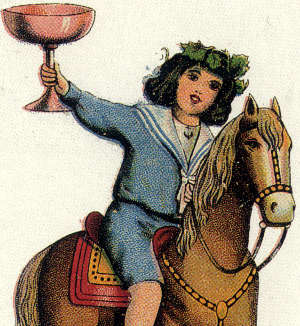
Litografías Industrias Madriguera, Barcelona, c.1896
Sets of playing cards or domino cards aimed at children became a new trend in Catalonia and Valencia during the 1870s designed to carry advertising slogans by chocolate companies on the fronts and/or reverse. Pictorial trade cards were becoming popular throughout Europe so that tea, tobacco, chocolate or even beef extract were the commodities most associated with beautifully lithographed and collectible insert cards. The quality and imagination of the designs reflects the cultural exuberance of those past times.
In this example, by Litografías Industrias Madriguera of Barcelona, suits were designed as skittles, balls, swords and sundae dishes around which groups of children are balancing or climbing. Ribbons or blank panels on the reverse incorporated references to the chocolate products (which in this edition have been removed).
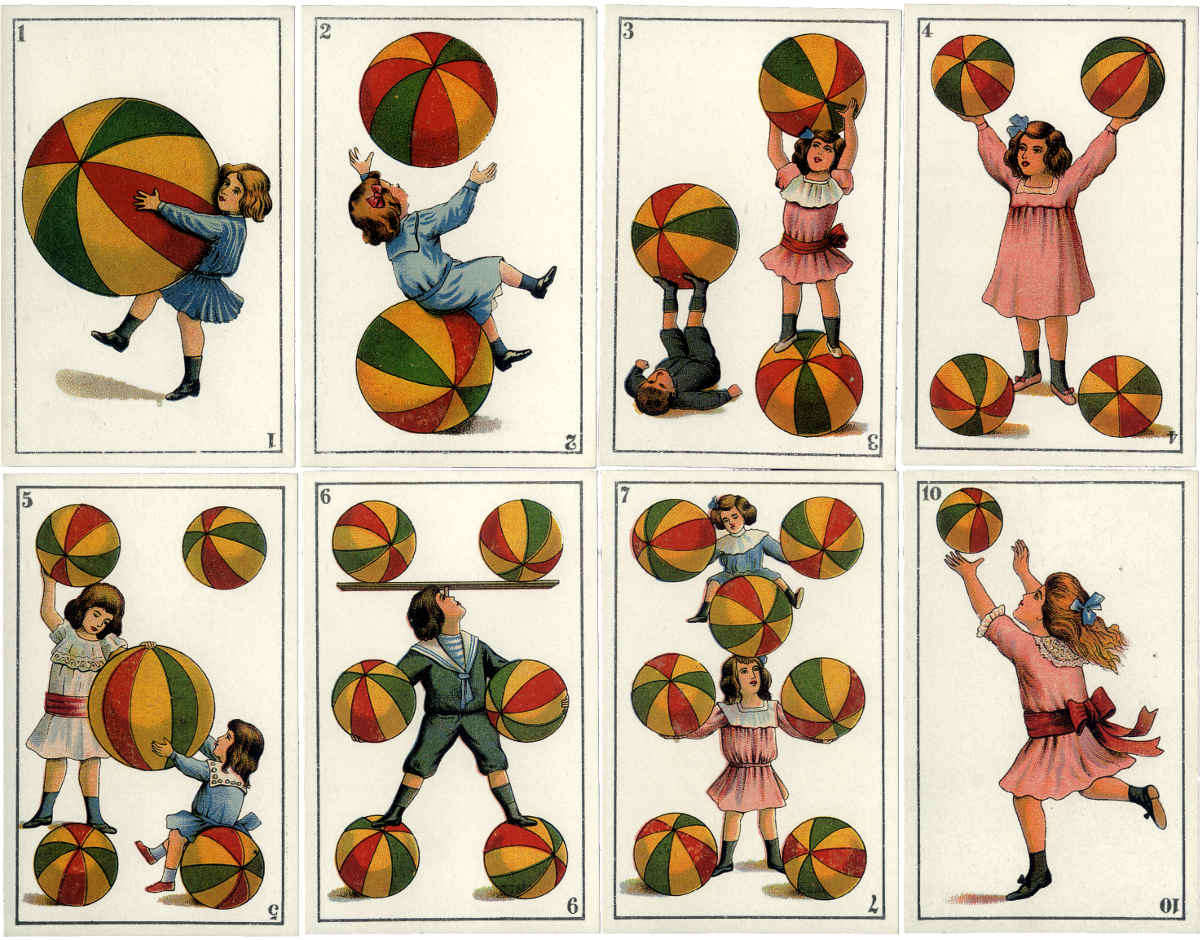
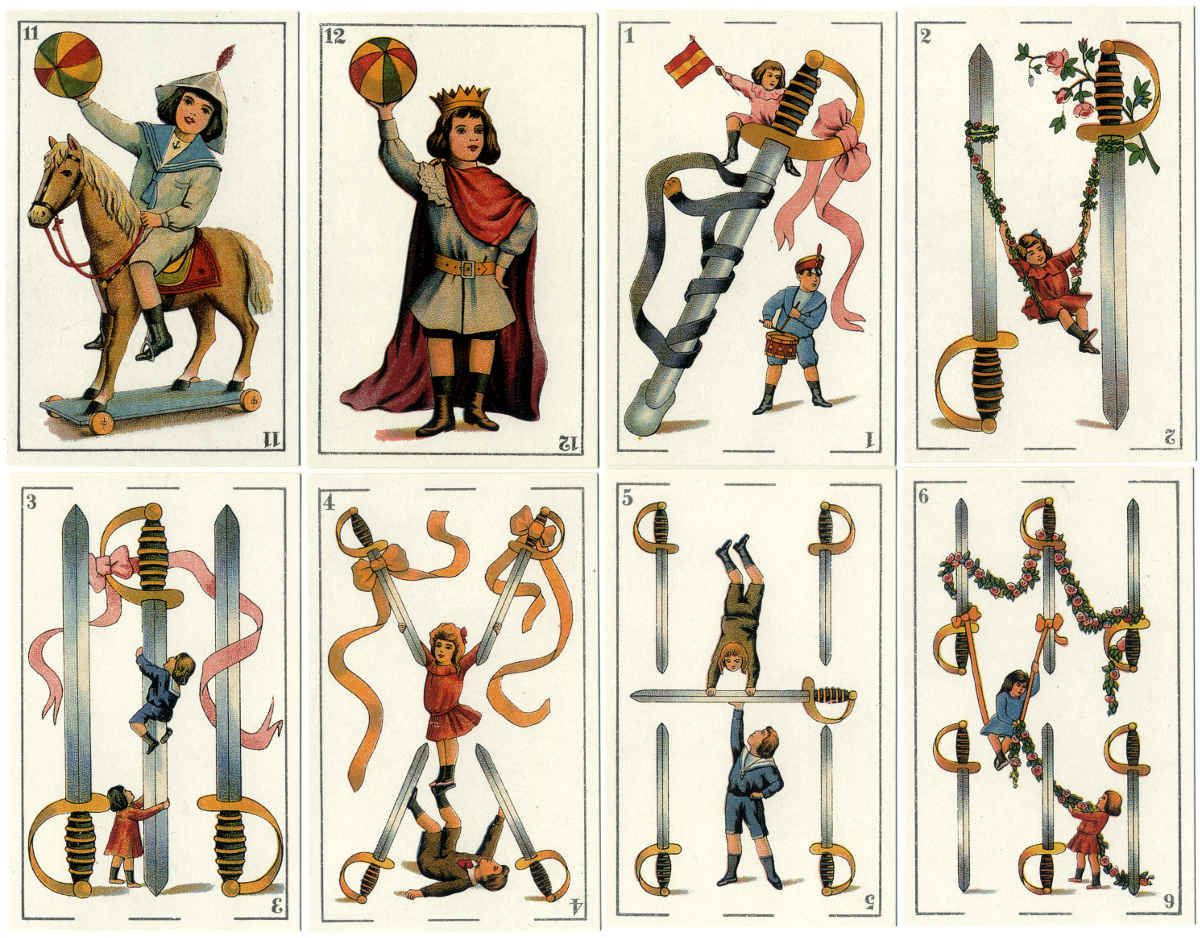
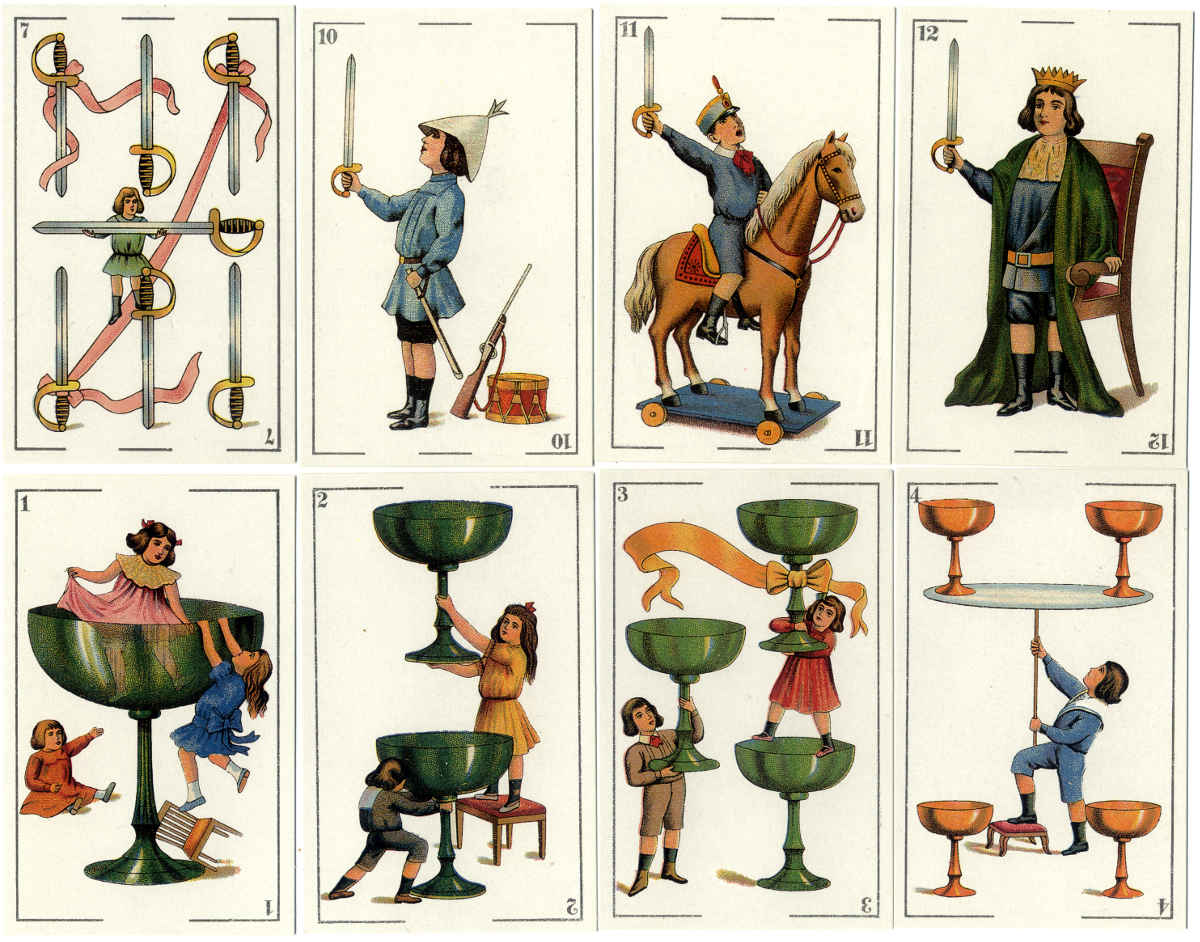
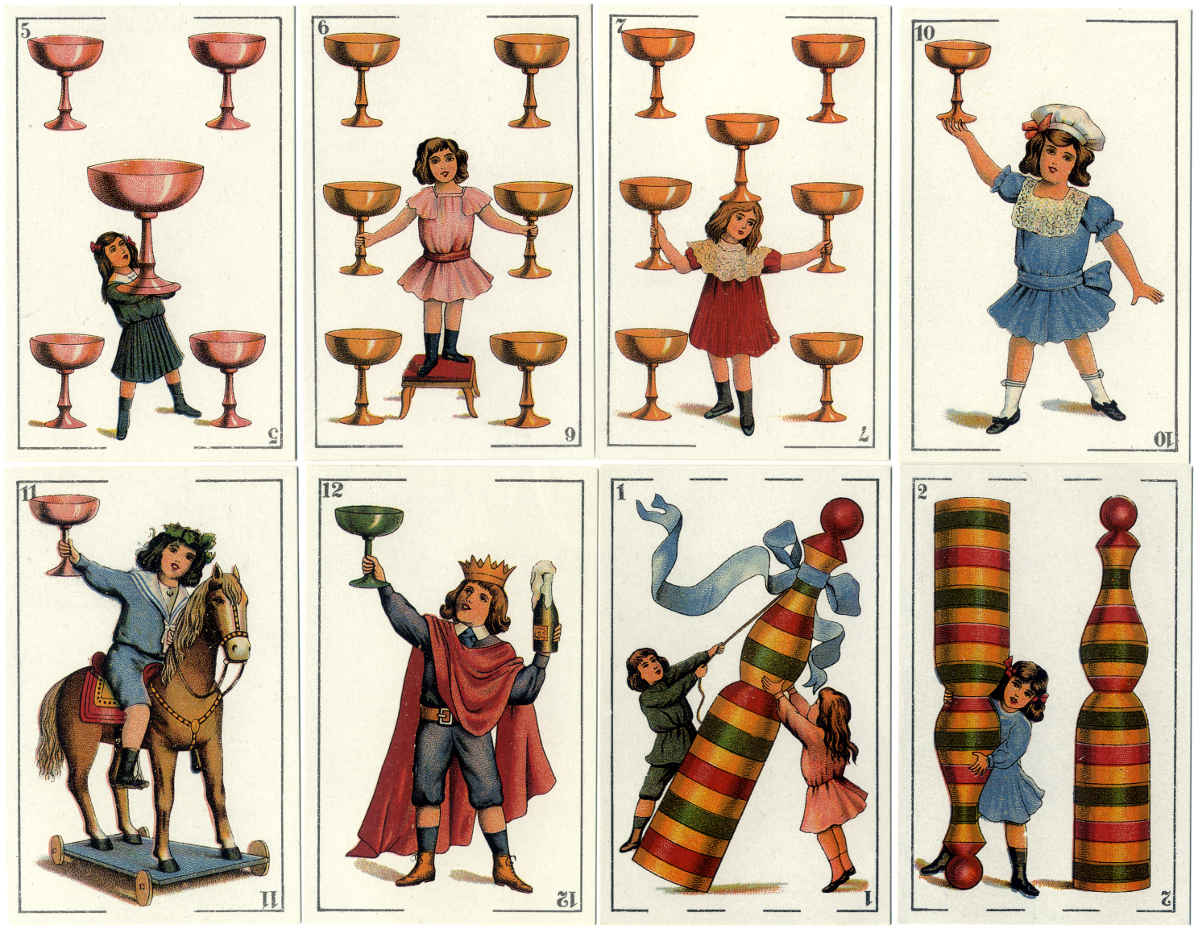
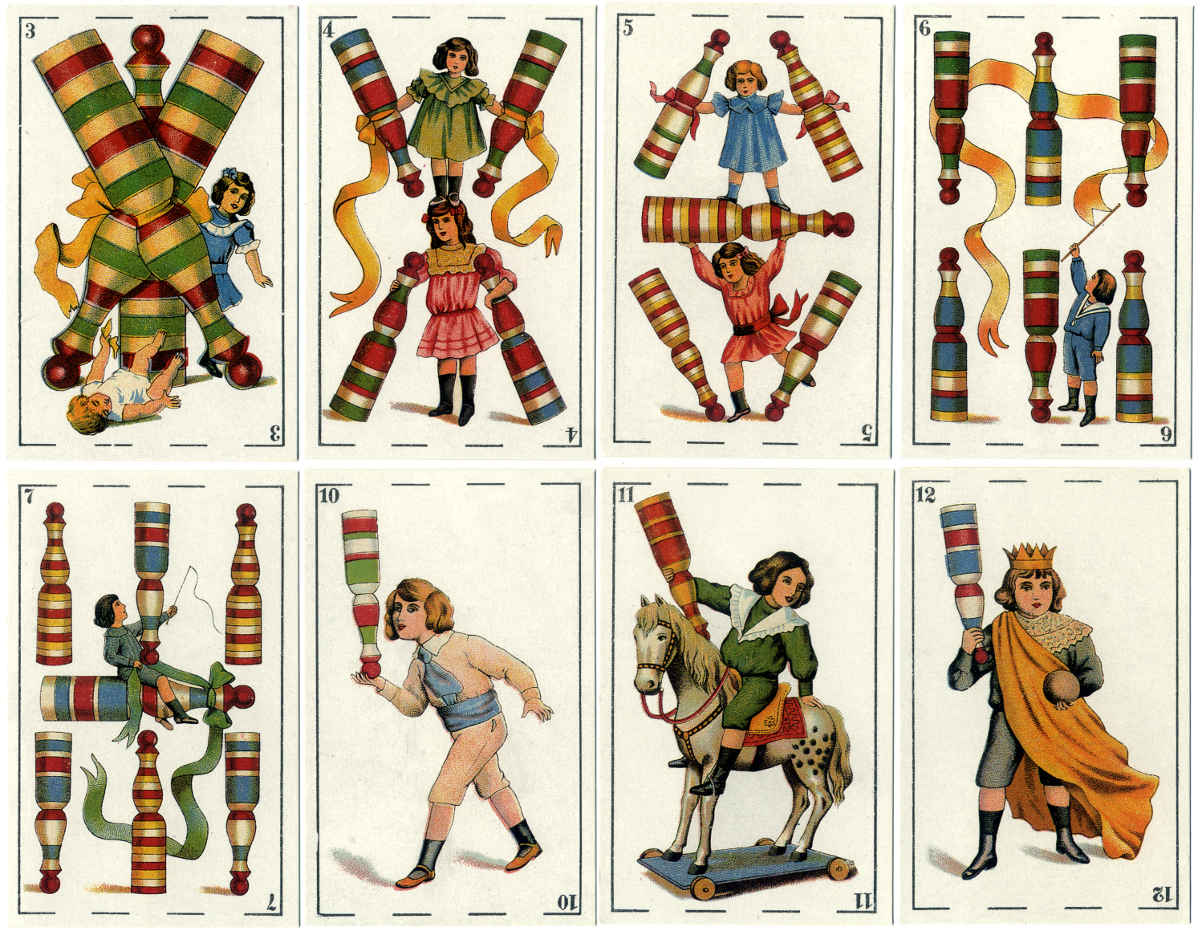
Above: cards from facsimile edition by El Sendero of 40 card version of a design originally published in c.1896 and re-issued in 1930s by Litografías Industrias Madriguera, Barcelona. 97x61mm.
See also: Naipes de "Don Quijote" by E. Pastor at Biblioteca Nacional de España • Juego de Naipes Comicos►
REFERENCES:
Denning, Trevor: The Playing-Cards of Spain, Cygnus Arts, London, 1996

By Simon Wintle
Member since February 01, 1996
I am the founder of The World of Playing Cards (est. 1996), a website dedicated to the history, artistry and cultural significance of playing cards and tarot. Over the years I have researched various areas of the subject, acquired and traded collections and contributed as a committee member of the IPCS and graphics editor of The Playing-Card journal. Having lived in Chile, England, Wales, and now Spain, these experiences have shaped my work and passion for playing cards. Amongst my achievements is producing a limited-edition replica of a 17th-century English pack using woodblocks and stencils—a labour of love. Today, the World of Playing Cards is a global collaborative project, with my son Adam serving as the technical driving force behind its development. His innovative efforts have helped shape the site into the thriving hub it is today. You are warmly invited to become a contributor and share your enthusiasm.
Related Articles

An Anonymous Belgian Transformation Pack
Anonymous Belgian transformation pack borrowing many images from earlier designs by Braun & Schneide...

Tarot de las Coscojas
Historical playing card design, tarot symbolism and an almost psychedelic medieval surrealism.

Tarot de Valverde de la Vera
A series of 24 surrealist engravings by Mexican artist Claudio Favier in which archetypal Tarot alle...

Baraja de Juan Martín Zamorano
Deck inspired by El Pendón de los Zamorano, a military pennant dating from 1501, published by Priego...

Le Journal de Mickey
Perforated sheet of cards with Disney characters issued with the magazine Le Journal de Mickey.

Heráldica Castanyer No. 16
Strange variant of international pattern cards for poker or bridge.

Fantasy Spanish-suited deck
Fantasy Spanish-suited deck by Bertschinger y Codina, Barcelona.

Bertschinger y Codina - Cartes Françaises
French ‘Paris’ pattern made by Bertschinger y Codina, Barcelona, c.1850.

Braulio Fournier
Baraja Nº 1 produced by Braulio Fournier, Burgos, c.1868.

Tarot Actuel 1984
Major arcana to cut out, issued with the French magazine Actuel, using photographic images.

Pirritx eta Porrotx
Happy Families card game from the Spanish Basque Country.

Naipe Vizcaino
‘Naipe Vizcaino’ designed by Javier Urkiri and published by Industrias Gráficas Castuera and the Caj...

Baraja Turística del País Vasco
Basque poker deck of 55 cards published by Fournier with scenic views of the Basque Country.

Baraja Vasca
Spanish Basque Country deck with original drawings by María Isabel Ibañez de Sendadiano.

Baraja Cultura Española
ASESCOIN pack for 2022 designed by M.A. Corella featuring famous Spaniards and notable buildings.

Laurenzo Propagine
Spanish-suited cards made in Italy by Laurenzo Propagine.
Most Popular
Our top articles from the past 28 days

